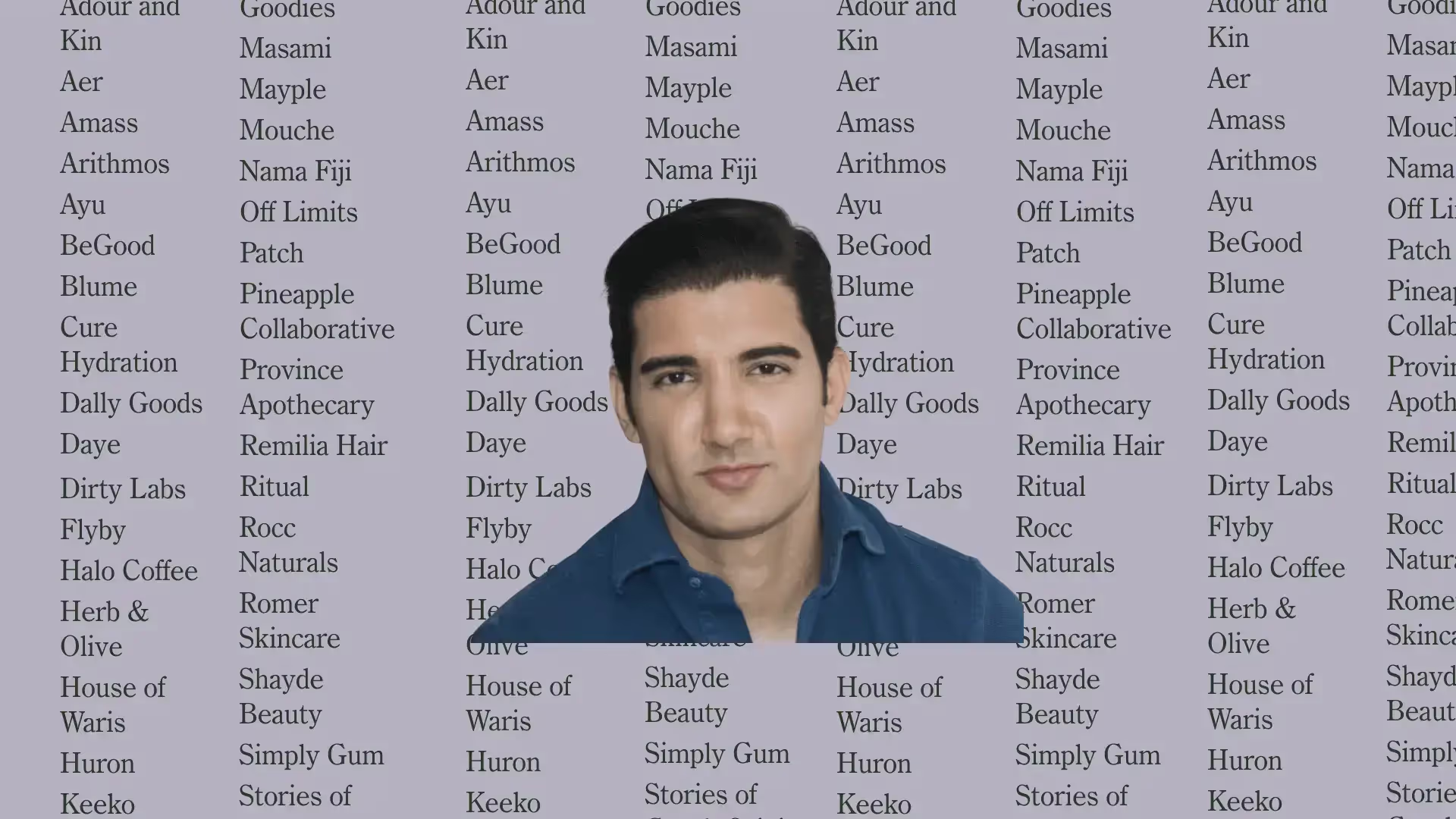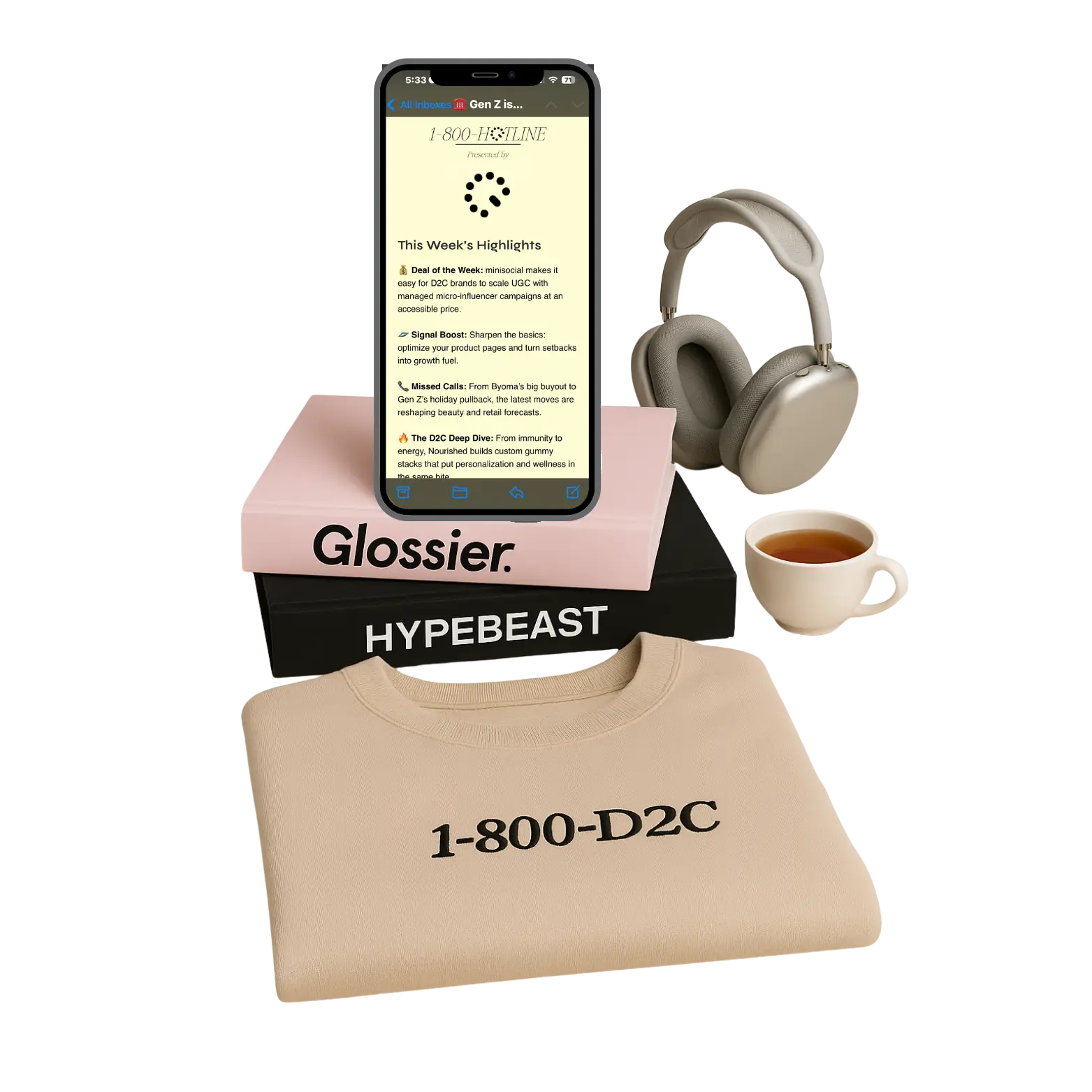
To make international expansion workable for D2C startups, Ammar Moiz along with his wife and co-founder Mishali Sanghani dreamed up the idea for Mayple as a digital marketplace and vehicle for getting products into the hands of consumers around the world. Soft-launched last month, Mayple carries nearly 40 personal care, skincare, haircare, feminine care, nutrition and home brands that it describes as ethical, effective and brag-worthy in its assortment, including Ritual Vitamins, Dally Goods, Masami, Huron, Aer, , Amass, Kin Euphorics, Blume, Twice, Arithmos, Keeko and Wholy Dose.
My background is in management consulting and private equity (primarily in the CPG space) where I was involved in the acquisition of a large global CPG company and got to learn the business by seeing first hand what strong international distribution looks like for CPG.
I then moved into the tech industry and was the COO for an AI startup which was acquired in 2018. After that, I was investing in D2C brands out of New York and noticed that they had pretty good domestic distribution, but were far off from thinking about international distribution. I had conversations with brand founders and realized that it came down to a lack of a distribution, network and logistics, but mainly…the regulatory nightmare that came with it.
On what was meant to be a 2-week trip at the beginning of the pandemic, I got stuck in Dubai for over 3 months due to the lockdown. When I started to buy personal care products, supplements and all other day-to-day needs, the selection felt like I was being taken aback 20 years ago. The grocery stores were filled with old school brands from large conglomerates such as P&G and Unilever and online wasn’t any better. I couldn't find products that were a fit for my lifestyle and taste; brands that I was used to consuming, or what we can define as “next generation consumer products”. A lot of them happen to operate as a DTC business model, but beyond that they're truly focused on natural/wellness ingredients, a digitally native aesthetic and a focus on sustainability. And those were the products that I embarked on making accessible to the world via a global platform, Mayple.
We wanted to solve two challenges that brands primarily have: logistics and regulatory hurdles.
For example, if you're a personal care brand and you're doing really well and you get interest from customers in Australia, and you wanted to enter the Australian market, you’d have two choices:
But both of those options are complex and have regulatory hurdles including certification and lab reports. Additionally, this is a process you would have to repeat for EACH geography and that’s incredibly complex and expensive.
So at Mayple, we’ve created a global platform that provides win-win for both brands and consumers. By centralizing our distribution center in Dubai, we can provide fast last mile deliveries to consumers in Asia, Middle East, Australia and Europe.
Our state of the art distribution center is located about 5 minutes from the airport which allows us to fulfil orders the same day so it can get on a plane to the final destination.
We also have a partnership with DHL that gives us very competitive rates for last mile deliveries all around the world which ensures you get a fast and cost-effective delivery wherever you are in the world. We charge $12 for orders under $80 in value and offer free shipping for orders over $80 in value. We also manage all the regulatory requirements and customs clearance, including collecting duty and taxes upfront so it’s a seamless experience for the brands that we work with and the consumers who shop on Mayple.

We don't purchase the inventory upfront. We operate as a marketplace model where the brand owns the inventory themselves. And then after sale, we take a fee and that varies between 35 to 42% which includes the shipping to Dubai, the last mile delivery to the consumer, and the marketing, warehousing etc. Our goal was to lower the barrier to entry for brands wanting to reach global consumers. With Mayple, they can do this with very little investment, in fact no investment on their side, other than committing some inventory towards international sales.
We work in collaboration with brands to best fit their needs in terms of initial inventory they are willing to commit. An advantage we have in working with so many brands is that we can consolidate the shipments. So for example, we might have 10 new brands launching on Mayple next month, and they're all from the US. So we consolidate the shipment with all the brands making their way to our distribution center in Dubai. This makes it not only cost efficient for everyone involved, but also better for the environment.
With that, we are disrupting the traditional business model for CPG global expansion. The old model involved distributors or wholesalers who bought the rights to products by geography, and then those products would be sold back to a wholesaler, and then to a retailer. Naturally, the margin gets eroded along the way. Which means CPG brands have to reduce their margin or take a big cut - and in many cases, it's both. All the while consumers end up paying more. That’s why we still see brands in international regions that are priced with a 25 - 30% markup compared to domestic retail prices. So my aim was to sell products as close as possible to their original retail price. But most importantly, give a better margin to the brands and the creators. Our brands ship their product to a local distribution center out in the US, the UK or Australia, wherever the brand may be. From there, we arrange for the shipment to our distribution center in Dubai. From there, we fulfill orders to consumers all around the world.
We are currently on Shopify. Shopify has done quite a bit in terms of international pricing and managing different currencies. There’s also a lot of customization that we’ve done on the backend to make this seamless for the end consumer. We worked with Patrick Johnson and his studio ( Progress Labs) who helped build this experience. To give you a small example of the complexities we manage, certain supplements might be banned in New Zealand, because they don't allow for more than 1000 IUs of vitamin D which is pretty standard for the rest of the world. So we have nsure those logistical nuances are managed so we don’t have negative customer experiences downstream.

That’s correct - One big acquisition driver is the organic traffic from the brands themselves. We support that through paid search on Google. Folks may be searching for a brand and even though they may not know of Mayple, we give them a pathway to purchase and transact with their desired brand. Then there's the cross-sell effect. If you're searching for a particular DTC brand, you may also be interested in other DTC brands, or you may discover other DTC brands because suddenly you have exposure to all of them. And then on the other acquisition side, we target the digital channels that our customers like to use. Here we’re targeting people who may have heard of a brand, but are not actively looking for it. And now they're aware that it's available in their market and they can purchase it.

Conjured allows you to launch a "Refer-A-Friend" program quickly and easily. Encourage customers to refer their friends. If their friend buys, your customer gets a discount, and your revenue increases. Discount codes or Gift Cards are created automatically, so there's no need for manual entry.
We work very closely with Farryn Weiner and the wonderful Farrynheight team, who have been our brand marketing partners from the early days, to create a community at Mayple. A lot of what we put out in terms of content is educational, in terms of brand stories, product benefits or founder stories. What is amazing about these next-generation brands is that they all are founded with an intention to improve - firstly, their own lives - but also the lives of their consumers through a better product. We love telling these stories across all our mediums.
And then in terms of retention and loyalty - we’re mostly reliant on word of mouth referrals. For example, we hear back from folks in Singapore through Instagram comments about how they love Mayple - and they tell all their friends about it. We are also planning to incentivize these referrals, going forward, and we are working with Conjured Referrals to create this experience.
Finally in terms of loyalty - we want to build long-lasting relationships with customers, so we're trying to figure out what system we can use to build a strong loyalty program. It’s slightly tricky because we can't give an offer like “give $10, get $10” because of the differences in currency - so we have to work around that in every geography. But certainly, one of the more exciting things about retention is that we're in the consumables business. Everything we have when Mayple needs to be replenished, so there’s natural retention through that. By having great brands and products, we know consumers will keep coming back for more.
We did look into Mirakl but ultimately we didn’t think it was a fit.
We're a managed marketplace, which is different from a regular marketplace model. By being a managed marketplace, we actually curate and list the brands/products ourselves. Even if you look at the product images and the experience on our website, it’s all designed to be consistent. We also curate the products across brands, product categories, and choices so we can offer consumers an elevated experience. Our merchandising team works very hard to ensure we have the best selection of brands that fit in with our ethos. Whereas in an unmanaged marketplace, a retailer can come in and list a product and then hope for it to sell.
We believe, very much, in the curation element- it’s one of the benefits we provide to our consumers. Given our business model and our requirements, we thought Shopify provided the best infrastructure and the best Shopify Apps for a smooth lift-off.
Discover new D2C brands, new eCommerce tools and read in-depth founder reviews each week.
